It looks like a worker’s paradise — a replica of Versailles Palace. But, as Huawei’s exhausted tech workers have discovered, there is no such thing as a work-life balance. Only loyalty.
Huawei is a Chinese rags-to-riches success story. Starting in a residential backyard, last year it overtook Apple as the world’s second largest mobile phone producer.
It now has an annual revenue of $100 billion. It has 180,000 workers worldwide — half of them dedicated to research and development.
Exactly how it reached such lofty heights is no secret.
It demands extreme loyalty and effort from all its employees.
And Huawei promises to reward them for both.
Its new headquarters in Shenzen has been built to become the impressive heart of a Chinese replacement for California’s Silicon Valley.
EXPLORE MORE:
President Xi’s brave new word? Or ultimate Utopia?
A ussie Huawei fire sale as Chinese giant lashes ban
Huawei ‘threat’ already entrenched
Emma the Yellow Wiggle’s new move with Huawei
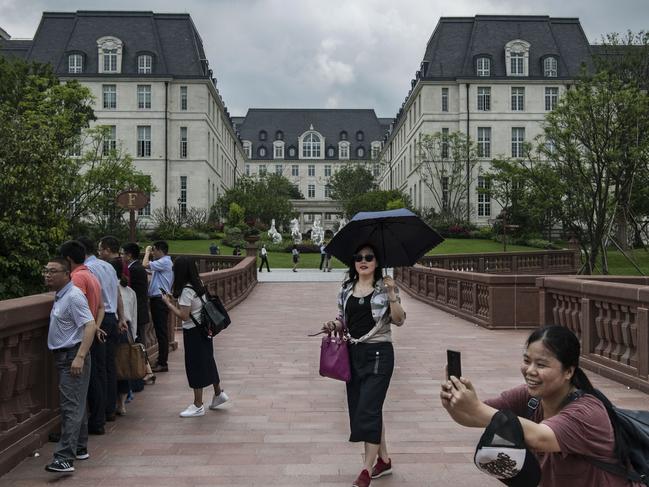
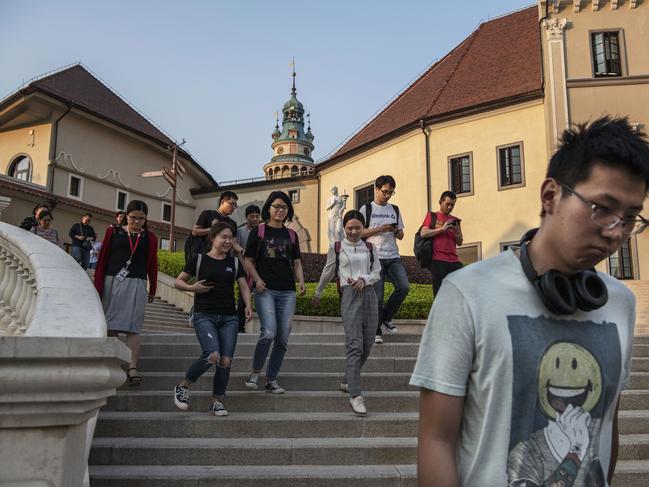
It’s a celebration of European culture. At its core is a reproduction of the French Palace of Versailles. Surrounding it are other imposing Gothic structures.
The gardens are lush and extensive. Scattered through it all are Romanesque statues of angels and heroic figures.
It’s a finely tailored front that feeds thousands of selfie posts to social media every day.
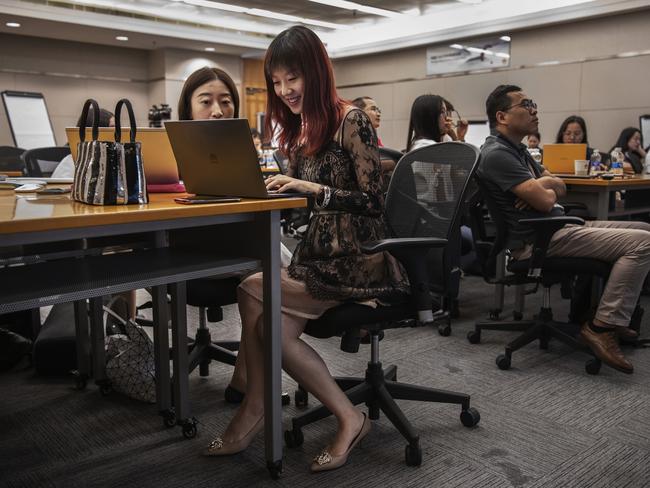
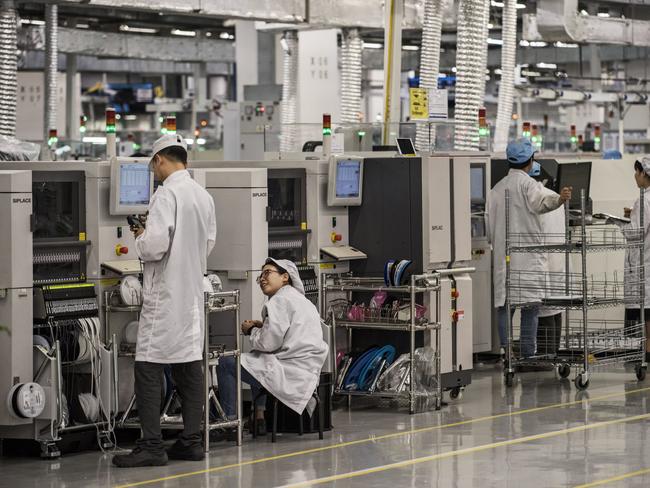
But it the secret it conceals is beginning to erode through the thin facade.
China’s big companies publicly state they are “dedicated to provide the most free space for development to employees and the best platform to grow and succeed.”
But those who work for them beg to differ.
THE ‘996’ REALITY
Huawei employees sleep in their cubicle in the research and development area after lunch. They have brought their own sleeping bags, collapsible mattresses and night goggles for the purpose.
Ostensibly, they’re still working.
They’re at their powered-down workstations.
And they can rebound to their keyboards at a moment’s notice, given a manager’s call.
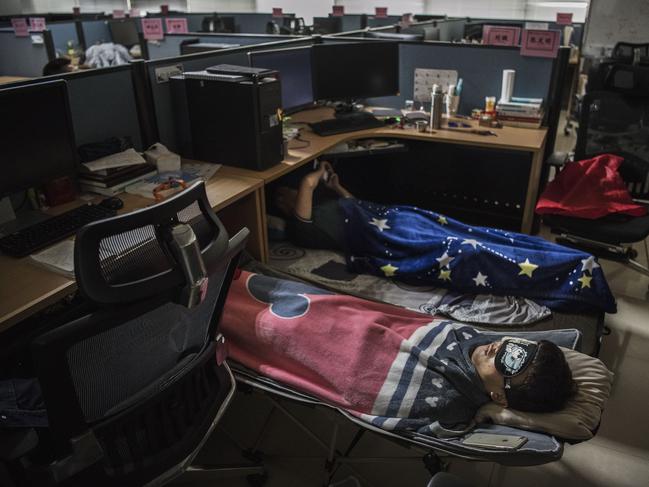

The Chinese tech-industry, in particular, has a gruelling overtime work culture.
It’s been dubbed the “996” schedule.
Start work at 9am, finish work at 9pm — and work six days a week.
For years it was considered a badge of honour.
To Western eyes, it’s an unravelling of the labour reforms of the late 19th and early 20th centuries. It also appears to be the antithesis of the Communism ethos Beijing so boldly proclaims.
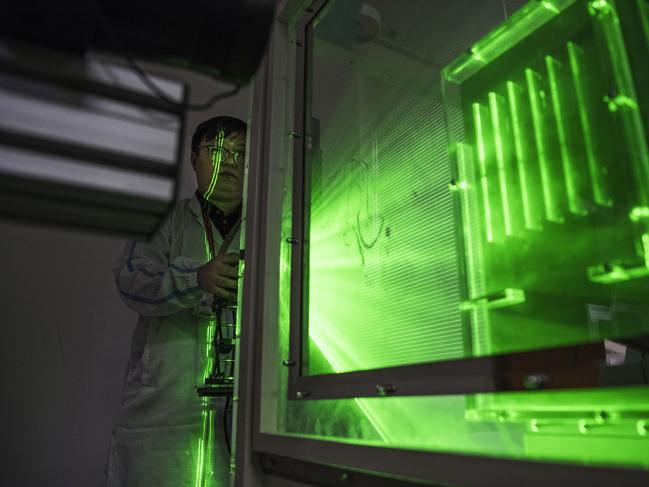
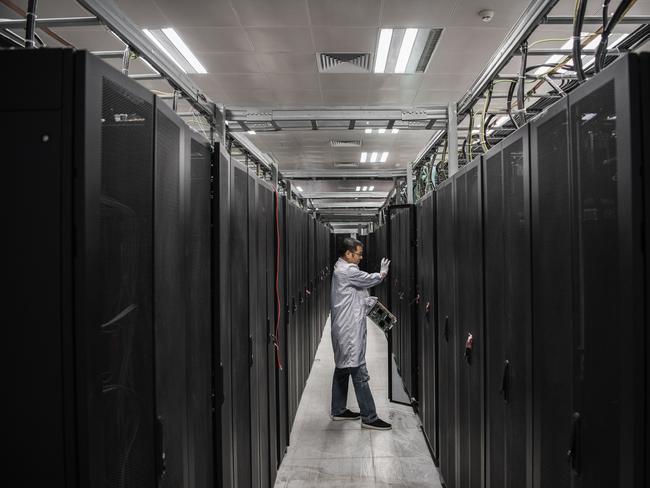
But Western market analysts have long attributed China’s rapid economic rise to such employee devotion.
Now, that loyalty is crumbling.
It’s a subject that has become the focus of Chinese online debates and protests.
And their corporate masters are not being at all compassionate.
CULTURAL REVOLUTION
The impecabbly dressed hostess carefully repositions a chair at an exquisite reproduction-French dining table. The dining hall is filled with baroque furniture, artwork and embellishments.
It’s an impressive setting for Huawei’s executives to greet high-profile customers.
Out back, it’s another scene entirely.
Huawe’s staff queue in a long line for a chance to buy what’s on offer from the subsidised cafeteria. And then they have to find a seat in the enormous, crowded eating hall.
And they are aware of the disparity.
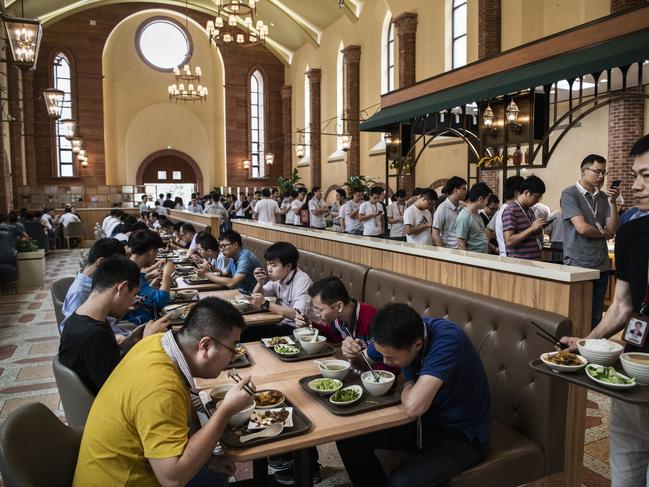

The first upwelling of protests are emerging. In April, programmers began sharing on social media details of their labour-camp like working conditions, as well as the excessive overtime and productivity being demanded of them.
They are required to be creative. To problem solve. All to deadlines set by people who didn’t know what either task entailed.
Sympathises around the country united with tales of overbearing exploitation.
Others began publishing a list of 150 state and privately owned companies that demanded long overtime — with names including Baidu Inc, Tencent Holdings and Ele.me.
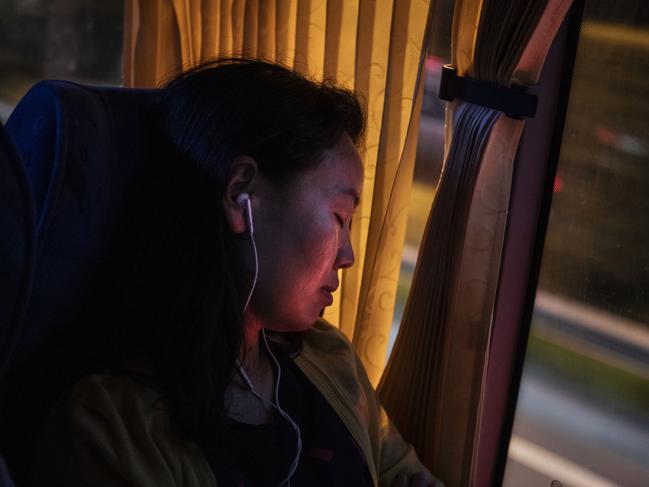
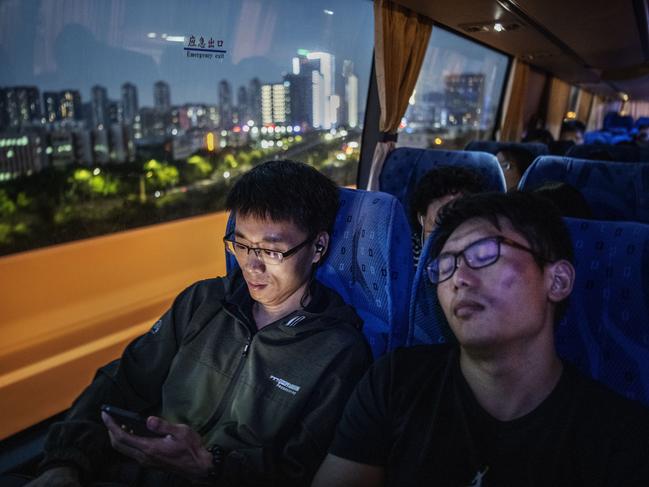
But there was also pushback.
Communist China’s new billionaires let loose with a few choice words of their own.
Founder of Chinese e-commerce giant JD.com Inc Richard Liu recently accused his employees of being “slackers” who did not behave as though they were his “brothers”.
Alibaba Group founder Jack Ma told his company’s employees that the opportunity to work overtime was a “blessing”.
He said he did not demand “996” compliance: “but every person must have the desire to push oneself to the limit!” he said.
HUSTLE RULES
Theoretically, Chinese labour laws mandate a 44-hour week.
But the same close ties between Chinese corporate world and the Communist Party that has caused such negative attention to focus on Huawei’s potential security risks has resulted in enforcement of these laws being ‘overlooked’.
There is no such thing as a work-life balance.
Only loyalty.
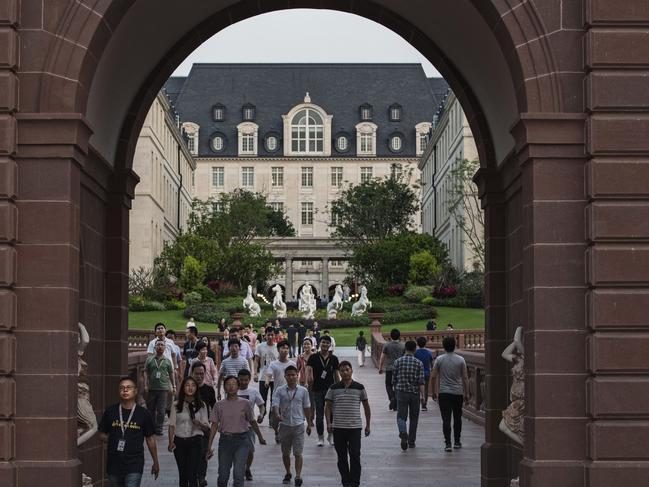

The founder and chief executive of e-commerce firm Youzan, Zhu Ning, posted to Chines social media platform WeChat that his company’s human resources department told every new employee that working there meant “huge pressure, where many have already treated long work hours as a habit and can’t really tell work and life apart”.
And they make sure of it.
Facial recognition software is being installed in the workplace.
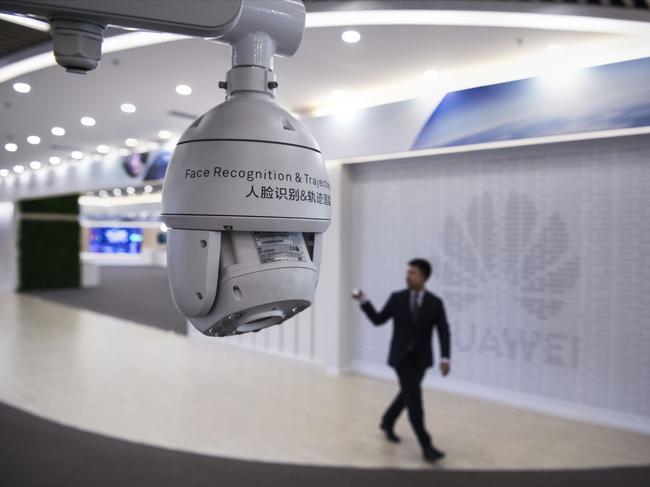
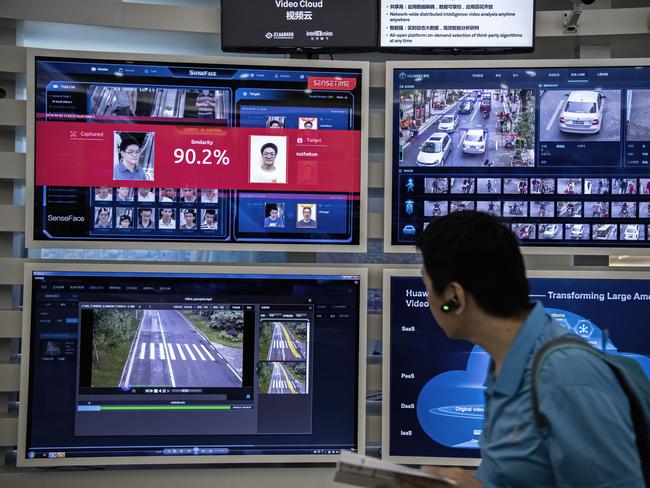
Now, your manager knows exactly where you’ve been, for how long, and whom you’ve been with.
After exacting such a toll from their employees while the going was good, China’s technology corporations now want even more.
Wage ceilings. Perk cuts. Promotion freezes. Longer hours.
The result is a rising tide of resentment.
Employees are asking: why is loyalty a one-way street?
And that has the Communist Party worried.
Recently, the State-run People’s Daily news outlet reported on the online revolt. It quoted one anonymous employee: “My company has set the 996 system on a ‘voluntary basis’ but if we do not follow, we will be judged as having low productivity. Any complaints will be reflected in our appraisals, giving the company an excuse to sack us for not performing.”
An acompannying editorial declared: “Employees who object to 996 cannot be labelled as ‘slackers’ or ‘not fighters’. Their real needs should be considered.”
Another article
BURNOUT
Huawei’s new campus has become something of a tourist attraction. It’s pristine grounds and grand halls present exactly the image its designers intended.
But the eyes of the employees stumbling down its stairs say another thing altogether.
China’s technology employees have had enough. They’re quitting in the search for something new, something less demanding. Outside of the industry.
And it’s all about loyalty.
They’ve given their all.
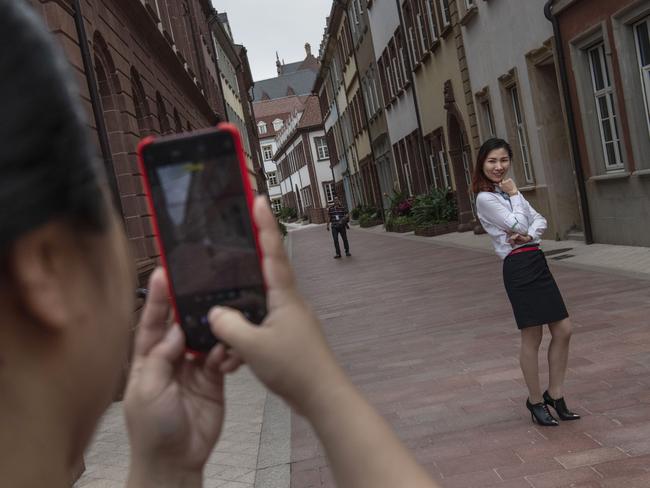
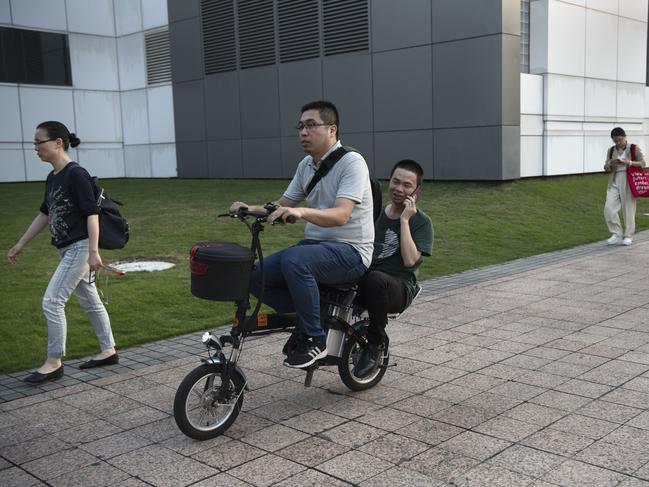
A recent industry turndown has seen lay-offs and redundancies sweep through many major companies. Now, employees facing redundancy are asking: was it all worth it?
“As employees, we get nothing, not even overtime pay but deteriorating health and the blame from families or lovers for not spending enough time with them,” one anonymous contributor told the People’s Daily.
But some companies are beginning to realise the high price of what they demand.
“If what you need from staff is creativity, not brute force, you need to let your staff go home, watch a movie, go on dates, browse a book store, travel, rest, raise kids,” software company XMind CEO Sun Fang told Reuters.

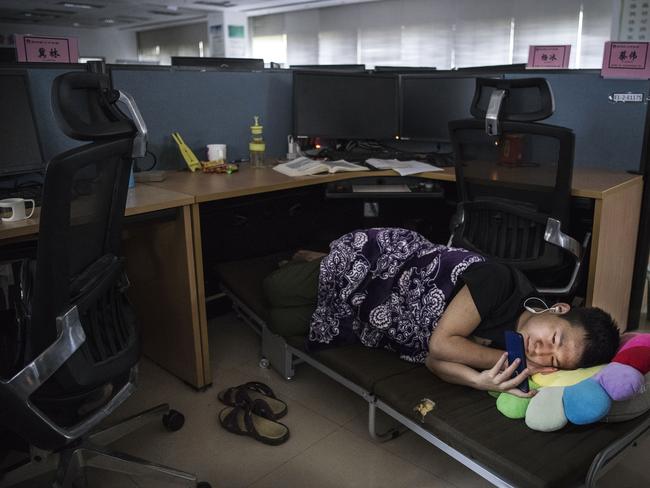
Tech employees are finding they cannot just find better working conditions elsewhere.
Their industry is firing. Not hiring.
Employment firms say there are now 32 applicants for every new job offered in the struggling sector.
But that’s not bothering many of those leaving.
They want to trade in work for life.
So they’re abandoning the industry, and chasing their dreams.

Add your comment to this story
To join the conversation, please log in. Don't have an account? Register
Join the conversation, you are commenting as Logout
Sick detail after 4 students murdered
A US man has pleaded guilty to murdering four university students as part of a deal to avoid the death penalty, nearly three years after the gruesome attack.
Major backtrack as sacked artists rehired
Australia’s peak arts funding body has issued an about-face after two artists who were controversially sacked as the country’s Venice Biennale representatives were rehired.